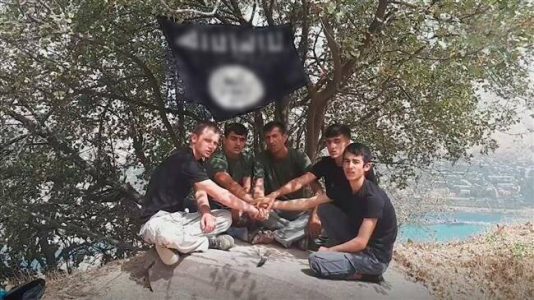
Over 80 kids born to ISIS terrorists repatriated from Iraq to Tajikistan
The ministry announced in a statement released on Wednesday that eighty-four children, all Tajik citizens, were “forced to join the ranks” of militant groups after their parents were recruited.
The statement added that the children returned on a special flight from Baghdad to Tajikistan’s capital Dushanbe on April 30.
Tajik Foreign Minister Sirodjidin Mukhriddin said on February 12 that his country was seeking repatriation of 75 children from Iraq.
Mukhriddin highlighted that while Iraqi legislation demanded that parents consent to their children leaving the country, the kids had mostly lost their fathers as they were fighting within the ranks of Daesh and other militant groups.
On February 8 last year, Tajikistan pardoned more than 100 people, who had returned home from Iraq and Syria after fighting along the ranks of Daesh and other terrorist groups.
Tajikistan’s Interior Minister Ramazon Rahimzoda said the returnees could resume their normal lives in the country based on a 2015 government decree for clemency.
“Regarding the fate of 111 Tajik citizens who returned from Syria and Iraq voluntarily, all of them are free under Tajik law,” Rahimzoda told a news conference in Dushanbe.
According to Tajik authorities, over 1,000 citizens have left the country to fight on the side of militant groups in Iraq and Syria since 2011. Most of the recruits had traveled to those countries via Russia, where an estimated one million Tajiks live and work.
The most famous Daesh recruit from Tajikistan was Colonel Gulmurod Khalimov, the head of the Tajikistan’s special purpose police, known as Omon.
On May 30, 2015, American officials confirmed that Khalimov had defected to Daesh. He was known for a while as the terror group’s “minister of war.”
Russia’s Defense Ministry reported on September 8, 2017 that its fighter jets had killed him during an operation in Syria’s embattled eastern city of Dayr al-Zawr.
The poor economic situation in Tajikistan and its adjacency to Afghanistan has made the country, a former Soviet republic, a prime ground for homegrown militancy over the past years.
Former Iraqi prime minister Haider al-Abadi declared the end of military operations against Daesh in the country on December 9, 2017.
On July 10 that year, he had formally declared victory over Daesh in Mosul, which served as the terrorists’ main urban stronghold in Iraq.
In the run-up to Mosul’s liberation, Iraqi army soldiers and volunteer Hashd al-Sha’abi fighters had made sweeping gains against Daesh.
Iraqi forces took control of eastern Mosul in January 2017 after 100 days of fighting, and launched the battle in the west on February 19 last year.
Source: Press TV





